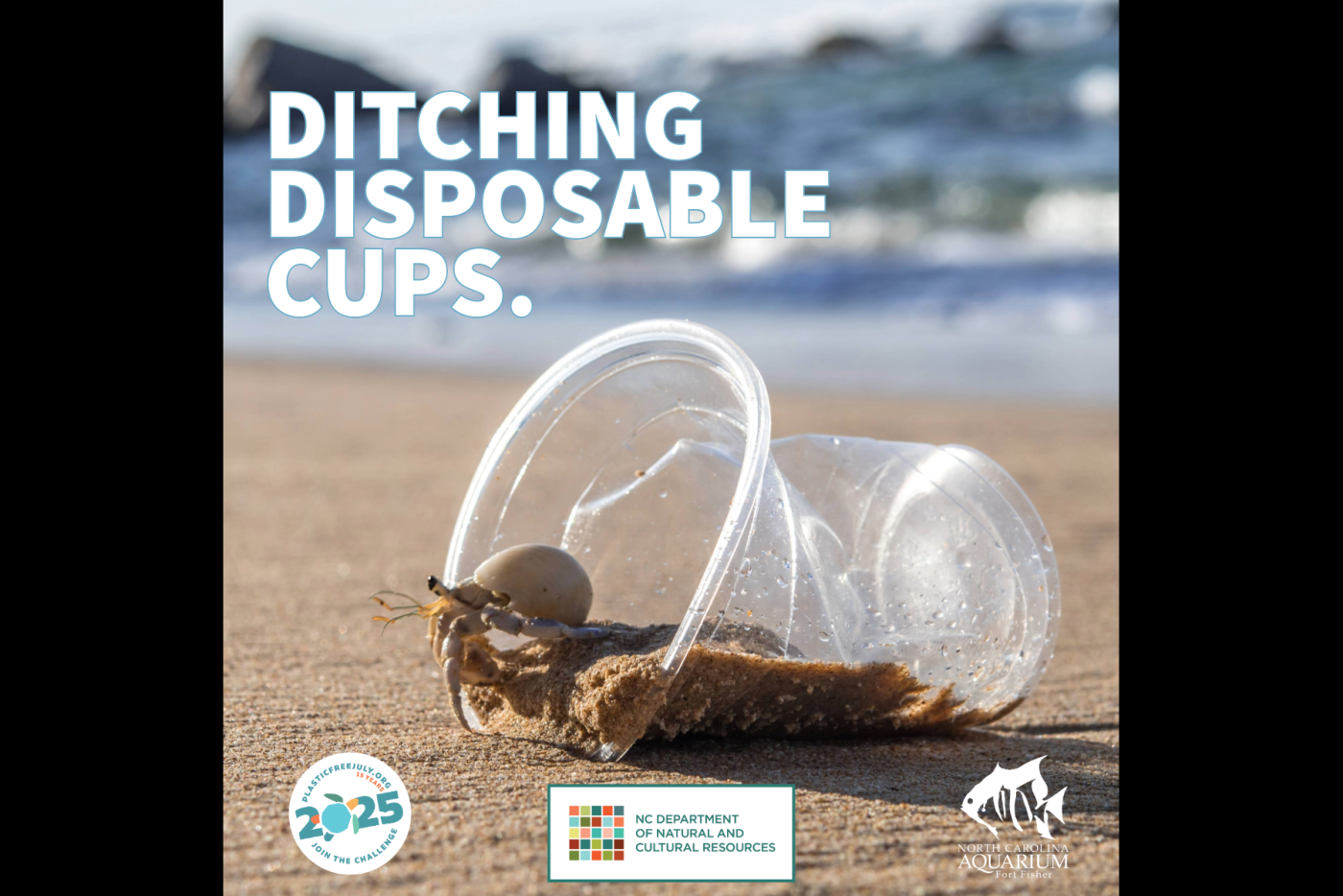Gentle nudges, reminders and inspiration are all part of how the North Carolina Aquarium at Fort Fisher (NCAFF) is enlisting the community to choose to refuse single-use plastic during Plastic Free July. Dedicating a month to sustainability can be just the jumpstart folks need to begin their green journey. From skipping the straw to refusing single-use plastic bags, the Aquarium is along for the ride. The Aquarium is a division of the North Carolina Department of Natural and Cultural Resources which oversees the state’s resources for the arts, history, libraries and nature.
“By sharing ideas and inspiration, we hope that our community will discover there are some green ideas they can easily incorporate into their lives,” said Deyanira Romo Rossell, communications manager and green team member, NCAFF. “Whether you have already made strides toward refusing single-use plastic or are just beginning, there is something for you in our monthlong Plastic Free July campaign.”
Greenspiration for Plastic Free July
It’s all about choosing to refuse single-use plastic by being prepared with a greener alternative. Here are a few of the tips:
- Refuse plastic cutlery. Opt for reusable utensils at parties, for lunch at work and even when picking up takeout.
- Ditch disposable to-go cups and lids. Carry your own tumbler to load up on tea or coffee at your favorite cafe.
- Avoid plastic produce bags. Bring your own produce bags to the grocery store, farmers market or produce stand and keep reusing them.
- Get away from single-use plastic grocery bags. Keep reusable bags at the ready in your car, bike basket or any mode of transportation you use to get to the grocery store or farmers’ market.
- Skip the Straw! Or find alternatives to plastic straws, including reusable stainless steel, glass, silicone or biodegradable/compostable made of bamboo, agave or wheat.
The Aquarium also walks the walk with composting bins for visitors on the food deck and in office areas for staff and volunteers. Everyone, from visitors to volunteers has access to the Aquarium water refill stations. The food vendor, SharkBites uses compostable cups, dinnerware and utensils for meals and drinks. The drink vending machines only dispense aluminum cans. The community is encouraged to follow along on NCAFF Facebook, Instagram, and Threads to find more clever tricks and clean ideas on how to live a greener life. Followers will find new greenspiration every day in July!
About the North Carolina Aquarium at Fort Fisher
The North Carolina Aquarium at Fort Fisher is just south of Kure Beach, a short drive from Wilmington on U.S. 421 and less than a mile from the Fort Fisher ferry terminal. The Aquarium is one of three Aquariums and a pier that make up the North Carolina Aquariums, a division of the Department of Natural and Cultural Resources. The mission of the Aquarium is to inspire appreciation and conservation of our aquatic environments. The Aquarium features a 235-000-gallon sand tiger shark habitat, an albino alligator, a bald eagle, a loggerhead sea turtle habitat and two families of mischievous Asian small-clawed otters.
Hours: 9 a.m. to 5 p.m. daily. Admission: $15 ages 13-61; $13 children ages 3-12; $14 seniors (62 and older) and military with valid identification; NC EBT card holders*: $3. Free admission for children 2 and younger and N.C. Aquarium Society members and N.C. Zoo members. *EBT rate is applicable to a maximum of four tickets.
About the North Carolina Department of Natural and Cultural Resources
The N.C. Department of Natural and Cultural Resources (DNCR) manages, promotes, and enhances the things that people love about North Carolina – its diverse arts and culture, rich history, and spectacular natural areas. Through its programs, the department enhances education, stimulates economic development, improves public health, expands accessibility, and strengthens community resiliency.

